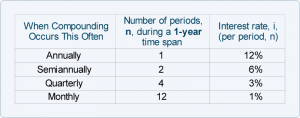
Zeni.ai is an AI-powered accounting software and finance platform designed to help startups streamline their financial operations. By combining artificial intelligence with human expertise, Zeni provides a comprehensive solution for bookkeeping, accounting, and financial management. The platform is tailored to meet the unique needs of early-stage and growth-stage startups, offering real-time access to critical financial metrics and insights to help businesses make data-driven decisions. Vic.ai is a pioneering platform in the realm of AI-driven accounting software. It is designed to digitally transform accounting and finance processes, enhancing productivity, decision-making, and return on investment (ROI).
Automation of Routine and Time-Consuming Tasks

As AI algorithms are exposed to more data, they become more accurate and effective, enabling accounting professionals to perform their tasks more efficiently and effectively. Receipt reconciliation can be a tedious and time-consuming task for accountants and auditors. AI technology can help automate this process by using OCR (Optical Character Recognition) to extract relevant data from receipts and match it with corresponding expenses. AI-powered chatbots, such as ChatGPT, are also becoming increasingly popular in accounting, providing real-time assistance to clients and employees with financial queries. These chatbots can quickly answer common accounting questions, provide guidance on financial reporting and compliance, and even assist with tax filings.
Generative AI in accounting: Opportunities and risks to assess today
What they lack (for now!) is the ability to do complex calculations and quantitative analyses — two skills crucial to the accounting profession. Further, to protect sensitive financial information from unauthorized access and cyber threats, consider implementing advanced encryption techniques, security protocols, and invest in cybersecurity training. Because AI systems may inadvertently replicate content from external sources, firms should also consider implementing plagiarism detection tools to ensure that financial reports and analyses are original and comply with ethical standards. Those sheets used to be on the outside of a folder, and the folder had all the paperwork in it.A lot of workflow software is still based on those old paper routing sheets. In some ways, it was more efficient when we just had all the paper in a file folder; at least it was easy to pick through and retrieve. Now we have to search through digital file folders of PDFs, and it’s often harder to find things.
What are the tax obligations for charities and nonprofits?
Vic.ai primarily targets the most manual and inefficient task in accounting – invoice processing. By doing so, it improves speed and scalability, enabling customers to reinvent their accounts payable operations. The platform’s proprietary AI, trained on more than half a billion invoices, reduces invoice processing time by 80% while maintaining 97-99% accuracy rates. AI accounting software works by automating repetitive tasks, analyzing financial data, and providing insights to help businesses make informed financial decisions. It uses machine learning algorithms to learn from data patterns and improve its performance over time.

AI-powered accounting software can help track price changes by analyzing market trends and forecasting future prices. This can help businesses make more informed decisions about pricing and inventory https://www.online-accounting.net/ management, ultimately improving profitability. Machine learning algorithms can be trained on large sets of financial data to recognize patterns and make predictions about future trends.
Apple makes history as the first company charged with violating EU’s DMA rules
Planful empowers finance teams to maximize their corporate performance by automating, accelerating, and aligning all financial processes. By leveraging the power of Planful, enterprises can gain valuable insights and optimize their financial performance. The software enables users to streamline their financial processes, allowing them to focus on more strategic initiatives to drive growth and what is fixed cost profitability. AI simplifies and automates time-consuming manual tasks like data entry, reconciliations, and invoice processing, ensuring high accuracy. For example, PwC, a global professional services firm, implemented AI solutions in the finance processes of a leading luxury hotel chain. Truewind and Docyt are examples of AI tools that can help with real-time data analysis and $reporting.

Bookkeeping, accounting, tax preparation and auditing are fields full of largely formulaic and repetitive exercises that would immensely benefit from generative AI’s gift of efficiency and time savings. And there are real, quantitative tailwinds that make this a particularly critical moment for accounting firms to lean into AI and machine learning. Simultaneously, the profession is attracting fewer job entrants, with the number of U.S. students who complete accounting degrees falling. This means in the coming years, far fewer professionals will be available to handle existing client demand — and firms are already struggling to keep up.
- Through these development efforts, we’ve gathered a host of valuable insights about GenAI’s capabilities, risks, and opportunities.
- Now that you understand how to leverage AI in accounting, all that’s left to do?
- AI is changing how accounting professionals work and serve their clients.
- Are you interested in knowing more about the state of AI in tax and accounting?
- Labor-saving devices like the washing machine have improved our standard of living.
In the tax example, while genAI may not be necessary for populating boxes on a templated form to file taxes, it can be immensely helpful when it comes to writing summaries. For example, all professional services firms typically try to do things in a distinctive style, whether it’s the format of their documents, the syntax of their correspondence, or the tone of their delivery. LLMs can easily be trained to summarize information in the style of a particular firm (or even an individual partner), and generate audit-ready reports and checklists for clients that look exactly like those previously prepared by hand. Botkeeper provides automated bookkeeping support to accounting firms by using a combination of machine learning, artificial intelligence, and skilled accountants. Enterprise Plan – For the Enterprise Plan, potential customers are advised to contact the Zeni.ai sales team for a customized quote. This plan is designed for larger businesses with more complex financial needs and includes all the features of the Growth Plan, plus additional services like dedicated account management and custom financial reporting.
No human could go through every one of those and say whether they were indicative of fraud. “Why do you need approval levels when AI can be smart enough to identify when something should have a human review?” he asked. He believes there will be AI agents that learn to take input from the business leaders the same way a staff accountant takes input from the manager of the accounting team, then follows those very high-level job instructions. As a result, I don’t have to make a rule such as, “Only approve expense reports below $10 automatically.” Instead, I can provide the AI with a list of historical expenses flagged as material or immaterial. I can then prompt it to “Only approve immaterial expenses automatically.” Based on the historical dataset, the AI technology can infer the meaning of “immaterial” in context and automatically approve or deny future expenses without a rule.
Analysts from the World Economic Forum (WEF) say automation will create 58 million new jobs, and most of these will need high skills. Even though AI can do routine tasks, accountants with special skills are needed to make sense of the data AI collects. People worry that AI might replace accounting jobs, but the truth is simple. In fact, accounting jobs are expected to grow by 4% in the next ten years, which is even more than the average job growth. According to a report by Mordor Intelligence, the market value of AI in accounting is expected to reach an impressive $6.62 billion by 2029. This surge is driven by AI’s ability to enhance accuracy and efficiency across various accounting tasks.
It can also be prompted to provide a confidence score for each decision, which can be used to flag questionable expenses to a human reviewer for a second opinion. Recent developments in artificial intelligence (AI), including the emergence of Generative AI, are leading businesses to evaluate AI’s potential impact to their business technology strategy. This publication https://www.kelleysbookkeeping.com/what-do-sundry-creditors-and-sundry-debtors-mean/ contains general information only and Deloitte is not, by means of this publication, rendering accounting, business, financial, investment, legal, tax, or other professional advice or services. This publication is not a substitute for such professional advice or services, nor should it be used as a basis for any decision or action that may affect your business.


